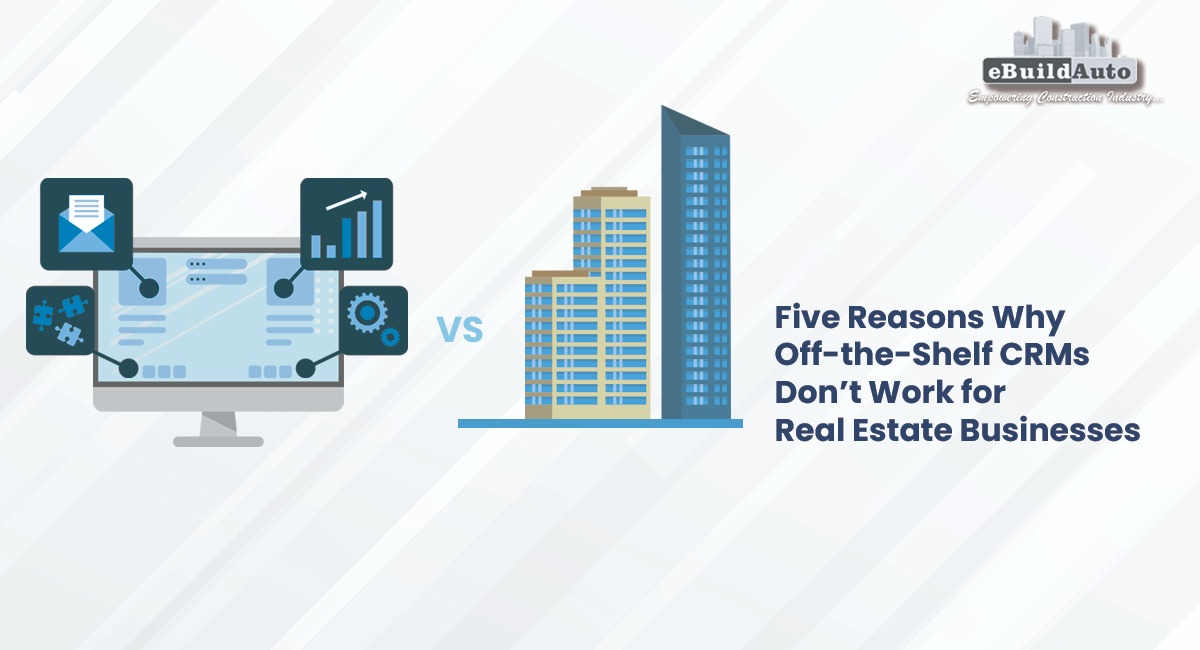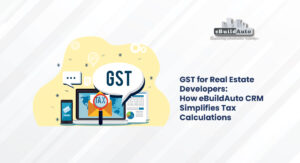There are many very powerful and versatile Real Estate CRM solutions available but how apt are they for Real Estate businesses that have very specific requirements?
A Customer Relationship Management (CRM) is an invaluable solution to manage the relationship a business has with a customer, and the bigger the purchase the stronger this relationship has to be. And a property purchase has to rank as one of the biggest—if not the biggest. Which is why your choice of CRM can make all the difference to your business. Yes, there are dozens of CRMs in the market and many of them are made and marketed by some of the biggest technology giants in the world.
One of the reasons, by the way, those companies are so big and wealthy, is the cost of not just licensing their CRMs but the cost of customizing the software so it can serve their specific needs.
Beyond cost, there are many reasons a specialized Real Estate CRM Software scores higher than an off-the-shelf, product. Here are five of the biggest.
Table of Contents
Toggle1. One size fits none
Off-the-shelf CRMs are built to serve as large a market as possible. And to do this to any degree of success, it needs to accommodate many bells and whistles, all of which then need to be customized to the buyer’s requirements. This means a higher spend of time, effort, and money. Since these CRMs are generally built by people with little to no experience in Real Estate in general, and none at all, especially in the Indian context, completely missing the mark in terms of aligning with how Indian Real Estate organizations operate.

2. Non-specific features:
Never does a generalist supersede a specialist; and that’s true for CRMs too. CRMs, like the popular off-the-shelf products from big market leaders, are exactly that: generalists. Thus, while many of them provide a staggering array of features, most of these were not built with Indian Real Estate businesses in mind. This is especially true in the Indian context, where the difference in objectives, processes, and goals, makes off-the-shelf global CRMs unsuitable. Contrary as it may seem, too many (non-specific) features actually make the CRM less suitable, as they translate into a lot of time spent trying to customize the CRM or create work-around solutions using features that were designed to do something quite different.
3. Long implementation lifecycle
Implementation of a new technology solution is not a plug-and-play affair. And CRMs are notorious for sucking up time and effort in the implementation phase. The time between making the purchase and going live can extend from months to never. That’s right: never! Because the longer it takes to be used, the less chance it has of being accepted by staff who are usually resistant to ‘new’ ways of doing things. Specialized Real Estate CRMs, on the other hand, are light, tight, and ready to go live in a fraction of the time. eBuildAuto, for instance, takes just one week to go live!
Did you know
eBuildAuto Real Estate CRM is implemented within a week.
4. Doesn’t integrate smoothly into existing workflows
The primary task of a CRM is to improve customer engagement. Where real estate is concerned this means timely and accurate generation of cost sheets, demand letters, progress reports, etc.—these are all specific to real estate, and most off-the-shelf CRMs completely fail to accommodate this in their features list. As a result, they are not tailored to the needs of your real estate team and other departments
5. Lack of extendability.
A specialized CRM can do a lot to improve your customer service, for example, by optimizing your sales and marketing, improving analytics for better decision making, or enabling higher efficiencies through automation and visibility into operations. A lot of this is courtesy of APIs with third party applications. eBuildAuto, for instance, allows users to leverage WhatsApp, not just in their marketing but also in keeping their customers informed of site progress, sharing demand letters—and reminders, etc. All of which makes CRM a game changer, not just for the customer service department, but for the entire organization.
There are many real estate players who invest in CRMs only to cast it aside in favor of a new flavor every year or two. If you’re one of them, and you consider why this happens, you’ll probably realize that one or more of the reasons mentioned above drove your decision. Eventually, you might even discard the very idea of using a CRM, and that would be a huge mistake.
Reach out to our team today for a no-commitment presentation. Click Now




